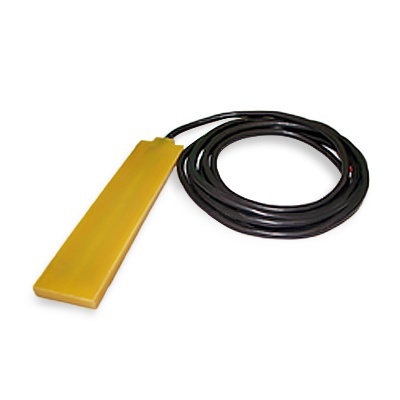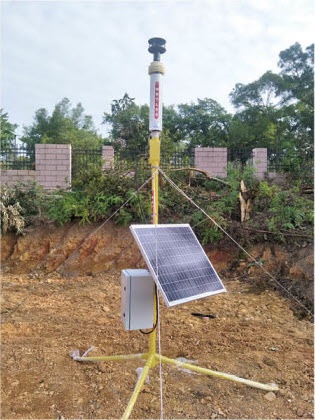看了PRI-8800全自动变温土壤培养温室气体在线测量系统的用户又看了
 留言询价
留言询价
虚拟号将在 180 秒后失效
使用微信扫码拨号
对于土壤呼吸来说,温度是其主要驱动因子之一。过去的许多研究表明,温度升高一般会促进土壤CO2的排放,这是碳循环与全球变暖之间的一个正反馈效应。通常,人们采用经验参数Q10值,即温度每升高10℃土壤呼吸速率的变化比率,来表示土壤呼吸对温度变化的反应强度,这就是土壤呼吸的温度敏感性,或称土壤呼吸对温度的依赖性。尽管许多生态学模型采用了单一固定的Q10值,但时间上,有证据表明,土壤呼吸对温度变化的反应并不是一成不变的,在不同的环境条件下,土壤呼吸往往具有不同的温度敏感性。使用单一Q10值极大的增加了碳气候模型预测的不确定性。
为模拟不同温度的土壤变化实景环境,北京普瑞亿科科技有限公司和中国科学院地理科学与资源研究所合作,开发PRI-8800全自动变温土壤温室气体(同位素)在线测量系统,可对接土壤呼吸研究的不同分析仪,提供了一套整体测量方案。除此之外,该系统还可应用于生物需氧和厌氧过程研究、高温塑料降解等研究,如制药过程中的微生物活性测量、BOD和毒性测量、昆虫呼吸、生物机能、含发酵过程的食品生产监控等等。
主要特点
可灵活对接不同分析仪(同位素分析仪、气体浓度分析仪等)
标配16位样品盘,也可选配4位或9位样品盘
自动化程度高,无人值守,24小时不间断工作
可方便拆卸土壤瓶固定装置,实现在线置换土壤瓶
全自动控温系统(-20~60 ℃),控温精度优于0.1 ℃
土壤温度传感器探针可频繁自动插入土壤瓶中,准确测量土壤温度
高效的气体循环气路——双回路气路设计,可根据需要对CO2浓度进行预处理,调控系统内的起始CO2浓度(避免过高CO2浓度的抑制效应)
高效的气路设计,缩短响应时间
可灵活设定的标定系统,保障测量数据的准确性
友好的软件界面,可根据具体实验需要设定参数及数据存储等功能
研究领域
1)利用其自动、连续、快速的特点,开展区域尺度的联网研究,揭示不同区域或植被类型的Q10变异及其控制机制。受传统培养和测试方法的影响,研究人员很难开展类似的研究,虽然整合分析能一定程度解决这个问题,但也存在不同实验处理条件和实验测定方法造成的高不确定性问题。
2)开展Q10对连续温度变化过程响应研究,更真实的模拟温度变化情况,从而揭示土壤微生物呼吸对温度变化的响应机制。受传统方法的限制,当前大多数研究均在小时、天、周尺度来开展,并没有揭示真实的温度日动态。
3)更好地开展土壤微生物对水分或资源快速变化情景下的研究。例如,降水脉冲是干旱-半干旱区的常见现象,土壤微生物活性(碳矿化速率或氮矿化速率)对水分可获得性的响应一直是非常重要又**挑战性的科学问题;类似的,土壤微生物对外界资源脉冲式供应的响应或激发效应也是近期研究热点。
4) 随着设备的广泛使用与改进,尤其是与13C分析设备相结合,相信会在土壤有机质周转领域具有更多的应用前景。
技术指标
| 指标 | 标准配置参数 | 接收定制 | 备注 |
| 系统响应时间 | <4s | ||
| 气压传感器精度 | 0.05% | ||
| 温度传感器精度 | ±0.15℃ | ||
| 气体流速 | 1L/min | 0-4L/min 可调 | |
| 培养瓶温度范围 | -15~60℃ | ● | 可根据客户需求更改温度范围 |
| 温度控制精度 | ±0.1℃ | ||
| 加热功率 | 1500W | ● | 可更换不同功率的加热器 |
| 制冷功率 | 1250W | ● | 可更换不同功率的压缩机 |
| 变温速率(升温) | 60s/℃ | ● | 跟加热器功率有关 |
| 变温速率(降温) | 90s/℃ | ● | 跟压缩机功率有关 |
| 循环泵流量 | 20L/min | ● | 可调 |
| 重复定位精度 | 0.02mm | ||
| 负载 | <2kW | ||
| 工作电压 | 24V,12.5A | ||
| 控制箱功率 | 220VAC<350W | ||
| 有效行程 | 400 * 400 * 150mm | ● | 可根据客户需要更改有效行程 |
| 控制方式 | PC | 控制箱内集成微型PC主机 | |
| 培养瓶容积 | 150mL | ● | 可更换各种容积培养瓶 |
| 气体管路 | 1/8不锈钢管或特氟龙管 | ● | 可根据客户需求更改 |
| CO2吸收剂 | NC Technologies S.r.l. | ● | 可根据客户需求更换吸收剂 |
| 采样装置尺寸 | 800 * 800 * 700mm | ||
| 控制箱尺寸 | 500 * 420 * 200mm |
AMBA i3211 CO2同位素分析仪
| δ13C精度(1σ) | <0.5‰ (1σ) @ 0.25 s <0.3‰ (1σ) @ 1 s <0.08‰ (1σ) @ 60 s <0.05‰ (1σ) @ 300 s |
| CO2测量范围 | 0-10000 ppm |
| 测量频率 | 4 Hz;1 Hz(测量频率与周转速率匹配) |
| 取样流速 | 15 mL/min;5 mL/min; |
| 样品池体积 | 0.1 mL |
| 吸收光路 | 2 m |
| 取样温度 | -10 ~45 °C |
| 微型真空泵 | 100 sccm@50 Torr |
| 取样压力 | 50~ 133 kPa |
| 取样湿度 | <99% R.H,无冷凝@40°C,无需干燥 |
| 校准 | 全自动在线校准 |
| 输出 | RS-232,网卡,USB |
| 出/入口接头 | 1/4英寸接头套管 |
| 尺寸/重量 | 19”(宽)× 31.5”(深)× 18.75”(高)/ 25 kg |
| 耗电 | 100-240 VAC,启动时<350 W(全部);稳定后, 200 W |
8800-1 CO2 H2O分析仪
| 性能指标 | |
| CO2准确度 | ± 2% |
| CO2测量范围 | 0-2000 ppm |
| H2O典型精度 | ± 2% |
| H2O测量范围 | 0~6% |
| 取样温度 | -20 ~45 °C |
| 取样压力 | 80~ 115 kPa |
| 取样湿度 | <99% R.H,无冷凝@45°C,无需干燥 |
| 出/入口接头 | 1/4英寸接头套管 |
配置说明PRI-8800全自动变温培养土壤温室气体(同位素)在线测量系统主要包含,含AMBA i3211 CO2同位素分析仪或8800-1 CO2H2O分析仪(选择8800-1时,分析仪内置到主控箱内);全自动变温培养系统,含水浴升降温系统、主控制箱、全自动进样器、16位样品盘等。
部分发表文章
1.Cao YQ, Zhang Z, Xu L, Chen Z, He NP. 2019. Temperature affects new carbon input utilization by soil microbes: Evidence based on a rapid δ13C measurement technology. Journal of Resources and Ecology, 10: 202-212.
2.Liu Y, He NP, Xu L, Tian J, Gao Y, Zheng S, Wang Q, Wen XF, Xu XL, Yakov K. 2019. A new incubation and measurement approach to estimate the temperature response of soil organic matter decomposition. Soil Biology & Biochemistry, 138, 107596.
3.Liu Y, He NP, Wen XF, Xu L, Sun XM, Yu GR, Liang LY, Schipper LA. 2018. The optimum temperature of soil microbial respiration: Patterns and controls. Soil Biology and Biochemistry, 121: 35-42.
4.Liu Y, Wen XF, Zhang YH, Tian J, Gao Y, Ostle NJ, Niu SL, Chen SP, Sun XM, He NP. Widespread asymmetric response of soil heterotrophic respiration to warming and cooling. Science of Total Environment, 635: 423-431.
5.Tang ZX, Sun XL, Luo ZK, He NP, Sun JX. 2018. Effect of substrate and microbial community on soil carbon mineralization: Evidence from three zonal forests. Ecology and Evolution, 8: 879-891.
6.Tian J, He NP#, Hale L, Niu SL, Yu GR, Liu Y, Blagodatskava E, Kuzyakov Y, Zhou JZ. 2018. Soil organic matter availability and climate drive latitudinal patterns in bacterial diversity from tropical to cold-temperate forests. Functional Ecology, 32: 61-70.
7.Tian J, He NP, Kong WD, Deng Y, Feng K, Green SM, Wang XB, Zhou JZ, Kuzyakov Y, Yu GR. 2018. Deforestation decreases spatial turnover and alters the network interactions in soil bacterial communities. Soil Biology and Biochemistry, 123: 80-86.
8.Wang Q, He NP, Xu L, Zhou XH. 2018. Important interaction of chemicals, microbial biomass and dissolved substrates in the diel hysteresis loop of soil heterotrophic respiration. Plant and Soil, 428: 279-290.
9.Wang Q, He NP, Xu L, Zhou XH. 2018. Microbial properties regulate spatial variation in the differences in heterotrophic respiration and its temperature sensitivity between primary and secondary forests from tropical to cold-temperate zones. Agriculture and Forest Meteorology, 262, 81-88.
10.Li DD, Fan JJ, Zhang XY, Xu XL, He NP, Wen XF, Sun XM, Blagodatskaya E, Kuzyakov Y. 2017. Hydrolase kinetics to detect temperature-related changes in the rates of soil organic matter decomposition. European Journal of Soil Biology, 81: 108-115.
11.Li J, He NP, Xu L, Chai H, Liu Y, Wang DL, Wang L, Wei XH, Xue JY, Wen XF, Sun XM. 2017. Asymmetric responses of soil heterotrophic respiration to rising and decreasing temperatures. Soil Biology & Biochemistry, 106: 18-27.
12.He NP, Yu GR. 2016. Stoichiometrical regulation of soil organic matter decomposition and its temperature sensitivity. Ecology and Evolution, 6: 620-627.
13.Shi Y, Sheng LX, Wang ZQ, Zhang XY, He NP, Yu Q. 2016. Responses of soil enzyme activity and microbial community compositions to nitrogen addition in bulk and microaggregate soil in the temperate steppe of Inner Mongolia. Eurasian Soil Science, 49(10): 1149-1160.
14.Wang Q, He NP, Liu Y, Li ML, Xu L. 2016. Strong pulse effects of precipitation event on soil microbial respiration in temperate forests. Geoderma, 275: 67-73.
15.Wang Q, He NP, Yu GR, Gao Y, Wen XF, Wang RF, Koerner SE, Yu Q. 2016. Soil microbial respiration rate and temperature sensitivity along a north-south forest transect in eastern China: Patterns and influencing factors. Journal of Geophysical Research: Biogeosciences, 121: 399-410.
16.Zhang XY, Tang YQ, Shi Y, He NP, Wen XF, Yu Q, Zheng CY, Sun XM, Qiu WW. 2016. Responses of soil hydrolytic enzymes, and ammonia-oxidizing bacteria and archaea to nitrogen applications in a temperate grassland in Inner Mongolia. Scientific Reports, 6: 32791.
17.Li J, He NP, Wei XH, Chai H, Wen XF, Xue JY, Zuo Y. 2015. Changes in temperature sensitivity and activation energy of soil organic matter decomposition in different Qinghai-Tibet Plateau grasslands. PlosOne, 10: e0132795. doi:10.1371/journal. pone.0132795.
18.Wang Q, Wang D, Wen XF, Yu GR, He NP, Wang RF. 2015. Differences in SOM decomposition and temperature sensitivity among soil aggregate size classes in temperate grasslands. PlosOne, 10(2): e0117033. doi:10.1371/ journal.pone.0117033.
19.Xue JY, Zhang HX, He NP, Gan YM, Wen XF, Li J, Zhang XL, Fu PB. 2015. Responses of SOM decomposition to changing temperature in Zoige alpine wetland, China. Wetland Ecology & Management, 23: 977-987.
20.He NP, Wang RM, Dai JZ, Gao Y, Wen XF, Yu GR. 2013. Changes in the temperature sensitivity of SOM decomposition with grassland succession: Implications for soil C sequestration. Ecology and Evolution, 3: 5045-5054.
暂无数据!
 PRI-8800全自动变温土壤培养温室气体在线测量系统的工作原理介绍?
PRI-8800全自动变温土壤培养温室气体在线测量系统的工作原理介绍? PRI-8800全自动变温土壤培养温室气体在线测量系统的使用方法?
PRI-8800全自动变温土壤培养温室气体在线测量系统的使用方法? PRI-8800全自动变温土壤培养温室气体在线测量系统多少钱一台?
PRI-8800全自动变温土壤培养温室气体在线测量系统多少钱一台? PRI-8800全自动变温土壤培养温室气体在线测量系统使用的注意事项
PRI-8800全自动变温土壤培养温室气体在线测量系统使用的注意事项 PRI-8800全自动变温土壤培养温室气体在线测量系统的说明书有吗?
PRI-8800全自动变温土壤培养温室气体在线测量系统的说明书有吗? PRI-8800全自动变温土壤培养温室气体在线测量系统的操作规程有吗?
PRI-8800全自动变温土壤培养温室气体在线测量系统的操作规程有吗? PRI-8800全自动变温土壤培养温室气体在线测量系统的报价含票含运费吗?
PRI-8800全自动变温土壤培养温室气体在线测量系统的报价含票含运费吗? PRI-8800全自动变温土壤培养温室气体在线测量系统有现货吗?
PRI-8800全自动变温土壤培养温室气体在线测量系统有现货吗? PRI-8800全自动变温土壤培养温室气体在线测量系统包安装吗?
PRI-8800全自动变温土壤培养温室气体在线测量系统包安装吗?



